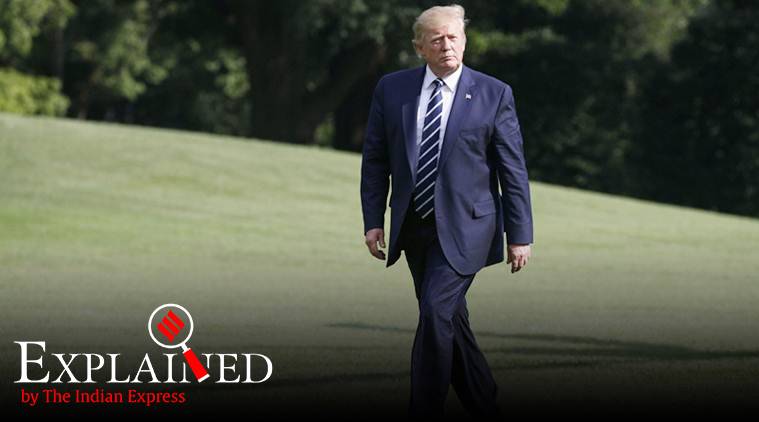
The administration of President Donald Trump has proposed to modify the inadmissibility criteria of its immigration regulations, which are likely to impact over a million green card and visa applicants. Essentially, the new regulations under the “Inadmissibility on Public Charge Grounds” will make it more difficult for applicants to change their status of application or seek permanent residency. It is likely to be effective from October this year.
What is the new rule?
Legal immigrants can stay in the United States as long as they are “self-sufficient”. Immigrants should be able to support themselves without using public resources to meet their needs, and rely on their own potential or have a person in the United States who can assure that the individual will not need public support, and thereby not be a burden on the taxpayer. This is to ensure that the availability of public benefits does not incentivise immigrations to the United States.
What changes?
Inadmissibility on account of public charge is not a new focus in United States immigration policy. The US has denied admission on public charge grounds since at least 1882. However, the new rule seeks to clearly define the terms “public charge” and “public benefit”, which had no set definition prior to this. Additionally, over eight provisions have been proposed under this rule. The Department of Homeland Security (DHS) has proposed to establish clear frameworks under which the minimum factors determining an immigrant’s admissibility will be judged. Determinations under this rule will be made in the totality of circumstances, under which certain factors such as assets, resources and financial status will be weighted more heavily than the others.
Public charge and public benefit
An individual (immigrant or nonimmigrant) who receives one or more public benefits is said to be a public charge. Public benefits is a list of cash and non-cash support including cash medical care, housing, food and benefit programmes.
Who is affected?
The proposed rule will affect individuals who are present in the United States, seeking an adjustment of status to that of a lawful permanent resident. It will also be applicable to individuals applying for a visa to enter the United States temporarily or permanently, for admission or for adjustment of status of their visa, or to be a lawful permanent resident. The visa categories H-1B (individuals in specialty occupation) and F-1 (student visa), which are the nonimmigrant categories under which many Indians seek visa, come under the ambit of public charge conditions. Applications submitted and moved before the rule becomes final will not be impacted.
Who can be inadmissible?
If at the time of application for a visa, admission, or adjustment of status, the applicant is likely to become a public charge, he/she will not be admissible into the United States. The DHS will consider parameters including the applicant’s age, health, family status, assets, resources, financial status, education and skills, where findings under these factors will be labelled negative or positive. As per the totality of circumstances framework, an applicant is admissible if the DHS finds that his/her positive factors and circumstances outweigh the negative factors and circumstances. Additionally, an immigrant who was previously receiving public benefits for which he/she was eligible, may not be allowed re-entry into the United States under the rule.
Who will be exempted?
Certain groups that are considered to be “vulnerable populations of immigrants and nonimmigrants” have been exempted. These include refugees and asylum seekers, pregnant woman, children, Afghan or Iraqi interpreters or nationals employed by or on behalf of the US government, and special immigrant juveniles, among others. Also, as per a provision dating back to 1893, an immigrant who is inadmissible under this rule may be granted admission on the discretion of the Secretary of Homeland Security, “if otherwise admissible”, upon giving a suitable and proper bond, which assures the state that the immigrant will not become a public charge.

